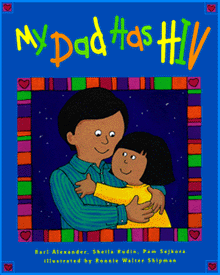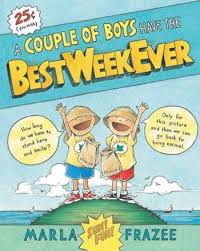Thursday, May 14, 2009
thanks
I really enjoyed my time spent in and on children's literature. I liked the flexibility and laid-back nature of discussion. I even liked being forced to read so many books. What was hard was once again getting around to the blogging. I read more than enough books but I didn't always get around to blogging and it kind of piled up on me. That's my fault. I just found it really draining to sit down and get my thoughts out on paper...erm, screen? It wasn't too bad though. I actually got so excited about some books that I shared them with my family and roommates, who couldn't care less mind you. It's nice to feel like something of an expert on the subject and possibly to be able to contribute more than an 'I liked/disliked it' for discussion. If I could do it over, I would definitely stay on top of my blogs. I would also try to look for more books out of my comfort zone. Historical fiction or non-fiction. I'd probably also read longer books. It was hard fitting them in to everything else. However, I have a whole summer to explore the corners left untouched by this course. I look forward to the lazy afternoons.
instead, he is thinking about other things. big things. and small things,
 I picked The Paperboy to show not only because it's a Caldecott Honor book, but also because it really highlights Dav Pilkey's versatility and range. Yup. That's the same Dav Pilkey behind such comedic 'classics' as Captain Underpants and Kat Kong and Dogzilla. And the Big Dog and Little Dog board books. Apparently, and this may already be common knowledge, he paints and thinks deeply as well. The quiet and calm Paperboy is a noticeable departure from Pilkey's usual high energy action/adventure. What I found particularly interesting was that Pilkey's paperboy is Afican-american. I see this book as more of a bedtime story someone might read when they actually want the kid to go to sleep. The little paperboy awakens early in the morning and goes to deliver his papers in the complete stillness and silence of early morning, followed by his dog. He does his job and then goes home to climb back into bed and dream with the rest of the world. Trust me, my description has oversimplified the story. The illustrations are, of course, striking. Although, they didn't knock my socks off.
I picked The Paperboy to show not only because it's a Caldecott Honor book, but also because it really highlights Dav Pilkey's versatility and range. Yup. That's the same Dav Pilkey behind such comedic 'classics' as Captain Underpants and Kat Kong and Dogzilla. And the Big Dog and Little Dog board books. Apparently, and this may already be common knowledge, he paints and thinks deeply as well. The quiet and calm Paperboy is a noticeable departure from Pilkey's usual high energy action/adventure. What I found particularly interesting was that Pilkey's paperboy is Afican-american. I see this book as more of a bedtime story someone might read when they actually want the kid to go to sleep. The little paperboy awakens early in the morning and goes to deliver his papers in the complete stillness and silence of early morning, followed by his dog. He does his job and then goes home to climb back into bed and dream with the rest of the world. Trust me, my description has oversimplified the story. The illustrations are, of course, striking. Although, they didn't knock my socks off.
dinosaur wins!
This book is ridiculous! The only reason I'm even talking about it is for the illustrations. I read it with a first-grader who was behind in reading, and he really liked it. Probably because 95% of the text is the word 'roar'. Dinosaur vs. Bedtime chronicles a little red dinosaur as he stalls before bed. He battles a number of inanimate objects (pile of leaves, bowl of spaghetti) and wins! How surprising. Eventually though, bedtime gets the better of him and he's shown passed out. This book is funny, if only for the illustrations. They're bold, bright, and interesting. Bob Shea blends real photos into his strangely full but sparse pictures in a, like, cutout pattern. The spaghetti in the drawn bowl is shaped like a pile of spaghetti but is cut out with real spaghetti placed behind it. Which probably makes no sense. Read the book. And if you can't, my first grade friend says it's also a TV show...what a world.
i was scared
 Ah, another 'tough issue' book. And another weird amalgamation of fact and fiction. What is it with books like this that try to tell a story but then randomly insert strangely serious social or medical information in awkward places. I know Earl Alexander, Sheila Rudin, and Pam Sejkora were trying to write book that first- to third-graders could understand, I'm assuming that's their target audience since Lindsey, the narrator, is in the second grade, but it gets to the point that it's insulting. I guess I believe in giving kids the facts, especially if they're curious enough to ask in the first place, and this book is pretty much in direct contention with my views. The dad in My Dad has HIV, has HIV, obviously. But how? Why? It's like it mysteriously and spontaneously generated in his system. Lindsey tells how her dad is brave and talks to people about being responsible for their own health...by eating nutritious foods, getting enough sleep, and washing their hands regularly. To prevent colds and the flu...ok...but where does HIV come in? The entire book likens the disease to the cold or a flu because it's a virus but they kind of leave out any real information or any kind of reaction to the disease. I'm not saying the characters should be stigmatized, far from it, but if you're going to write an informational book for kids, shouldn't you include information? Or if you're writing fiction, shouldn't there be a story? My Dad has HIV has neither.
Ah, another 'tough issue' book. And another weird amalgamation of fact and fiction. What is it with books like this that try to tell a story but then randomly insert strangely serious social or medical information in awkward places. I know Earl Alexander, Sheila Rudin, and Pam Sejkora were trying to write book that first- to third-graders could understand, I'm assuming that's their target audience since Lindsey, the narrator, is in the second grade, but it gets to the point that it's insulting. I guess I believe in giving kids the facts, especially if they're curious enough to ask in the first place, and this book is pretty much in direct contention with my views. The dad in My Dad has HIV, has HIV, obviously. But how? Why? It's like it mysteriously and spontaneously generated in his system. Lindsey tells how her dad is brave and talks to people about being responsible for their own health...by eating nutritious foods, getting enough sleep, and washing their hands regularly. To prevent colds and the flu...ok...but where does HIV come in? The entire book likens the disease to the cold or a flu because it's a virus but they kind of leave out any real information or any kind of reaction to the disease. I'm not saying the characters should be stigmatized, far from it, but if you're going to write an informational book for kids, shouldn't you include information? Or if you're writing fiction, shouldn't there be a story? My Dad has HIV has neither.
nature camp was bill's idea
 I had the pleasure of reading A Couple of Boys Have the Best Week Ever for the first time with a third-grader over 2 weeks or so, but reading this book would have been a pleasure any way I did it. Marlee Frazee jam packs her book with subtle humor in comedic asides and cool illustrations. I would describe the book's format as, like,...a comic book diary...from the third person omniscient...if such a thing exists. Frazee tells the story of James and Eamon (sounds like AY-mun) who go to visit Eamon's grandparents so they can go to a nature camp nearby. However, it turns out nature camp isn't quite as interesting as direct contact. Now, ask me how I knew how to pronounce Eamon's name? Because Frazee put the pronunciation on the character list on the back cover! This immediately made me like the book because I can't stand not being able to pronounce some of the more interesting names in literature (Hermione anyone?). It would have been especially embarassing as a so-called 'reading tutor'. Plus, I hate missing out and all the neat names. Another thing that immediately made me like the book as an in-between (not a child, yet not quite a 'responsible' adult), was the generation gap, emphasized by Frazee. The boys were very clearly in a world of their own that they knew how to navigate very well. And I will be the first person to admit that Eamon's grandparents are a little wacky, especially with Grandpa Bill's fondness of penguins, but Frazee does an awesome job at showing how age does sometimes bring wisdom. It's easy to see why it won the Caldecott. The only thing I didn't like was how the book became predictable, which would have been okay (many children's books are), but the ending I saw coming came at a moment I wasn't expecting it, making it a little abrupt.
I had the pleasure of reading A Couple of Boys Have the Best Week Ever for the first time with a third-grader over 2 weeks or so, but reading this book would have been a pleasure any way I did it. Marlee Frazee jam packs her book with subtle humor in comedic asides and cool illustrations. I would describe the book's format as, like,...a comic book diary...from the third person omniscient...if such a thing exists. Frazee tells the story of James and Eamon (sounds like AY-mun) who go to visit Eamon's grandparents so they can go to a nature camp nearby. However, it turns out nature camp isn't quite as interesting as direct contact. Now, ask me how I knew how to pronounce Eamon's name? Because Frazee put the pronunciation on the character list on the back cover! This immediately made me like the book because I can't stand not being able to pronounce some of the more interesting names in literature (Hermione anyone?). It would have been especially embarassing as a so-called 'reading tutor'. Plus, I hate missing out and all the neat names. Another thing that immediately made me like the book as an in-between (not a child, yet not quite a 'responsible' adult), was the generation gap, emphasized by Frazee. The boys were very clearly in a world of their own that they knew how to navigate very well. And I will be the first person to admit that Eamon's grandparents are a little wacky, especially with Grandpa Bill's fondness of penguins, but Frazee does an awesome job at showing how age does sometimes bring wisdom. It's easy to see why it won the Caldecott. The only thing I didn't like was how the book became predictable, which would have been okay (many children's books are), but the ending I saw coming came at a moment I wasn't expecting it, making it a little abrupt.
Subscribe to:
Comments (Atom)